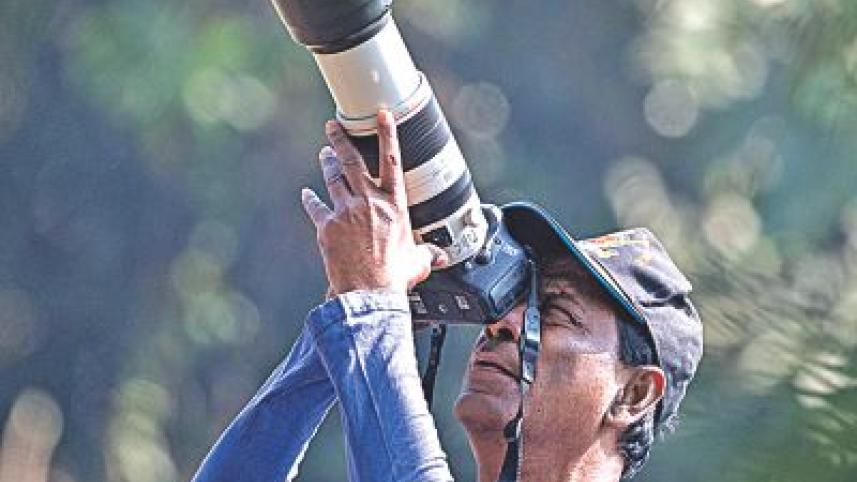A Well-Deserved Recognition

Eminent birder and conservationist Enam Ul Haque recently received the Bangabandhu Award for Wildlife Conservation. In a ceremony in Dhaka on 18th July, the honourable Prime Minister placed the Award's gold medal around his neck.
Since I have known Haque's work for several years and have learned much about birds from him, I was delighted by this national recognition of decades of bold and dedicated work on conservation.
I congratulated Haque for this recognition. “What difference did your conservation work make? For example, are there species in Bangladesh that your work prevented from disappearing?” I asked.
Haque pointed out his work on vultures. White-rumped Vultures, Gyps bengalensis, were once found everywhere in Bangladesh. But today they have become rare. This happened because they died feeding on carcasses of cattle treated with the medicine Diclofenac. Haque pioneered the movement to raise awareness of this problem and campaigned for banning Diclofenac for cattle use. It was banned in Bangladesh in 2010.
Today the vulture population in Bangladesh – though perilously low - has stabilized.
Our neighbouring countries, India, Pakistan and Nepal, had been quicker to act. When vulture populations in the subcontinent fell precipitously, researchers sought the cause. Eventually it was discovered that after feeding on the carcass of cattle that had been treated with Diclofenac, a vulture's kidneys calcify and it dies the same day. Incidentally, other creatures, including humans, can process Diclofenac; only the vulture is susceptible.
In 2006, our three neighbouring countries banned the use of Diclofenac for cattle. In Bangladesh, however, the drug remained legally available and was widely used.
Haque took up the issue in 2007. Through Bangladesh Bird Club, he raised awareness by hosting seminars, distributing brochures and writing newspaper articles. Soon others joined him in the fight. In 2010 the government of Bangladesh was convinced. It banned Diclofenac for cattle.
What motivated him to take up the cause? Haque said he spent childhood in a village where dozens of vultures were permanently perched on trees around the village dump. They were a part of his growing up. He was propelled by childhood memories to save them.
Among his other accomplishments, the retired Air Force officer founded the Bangladesh Bird Club over 20 years ago. He is the author of five books on nature and is the principal editor of Encyclopedia of Flora and Fauna of Bangladesh, Volume 26: Birds. He has spearheaded several large-scale efforts for the birds of Bangladesh, including annual bird census and bird ringing.
I asked him about his next conservation project. He mentioned three extraordinary chars of the Padma river in Rajshahi: Majar Dia, Premtoli and Bakor Ali. In recent years, several rare birds have been discovered in these chars, including the Black-bellied Tern, Bristled Grassbird and Savannah Nightjar. Some of these were thought to have disappeared from Bangladesh. For inexplicable reasons, these tiny chars have become the habitat for some very special birds.
However, these chars – though of little economic value - are used and abused by people. Some temporarily squat there while others cut the tall grass and plants for fuel. Human interference could drive away these birds. So Haque has proposed establishing three bird sanctuaries in these chars. Declaring these sanctuaries would be a profoundly important and far-reaching step as there is no bird sanctuary in Bangladesh, a country blessed with a large number of bird species – seven hundred – given its small size.
www.facebook.com/ikabirphotographs or follow ihtishamkabir on Instagram



 For all latest news, follow The Daily Star's Google News channel.
For all latest news, follow The Daily Star's Google News channel.
Comments